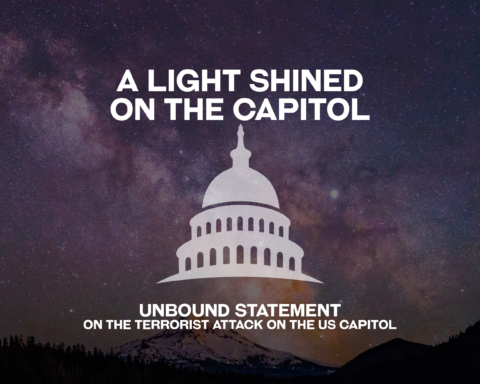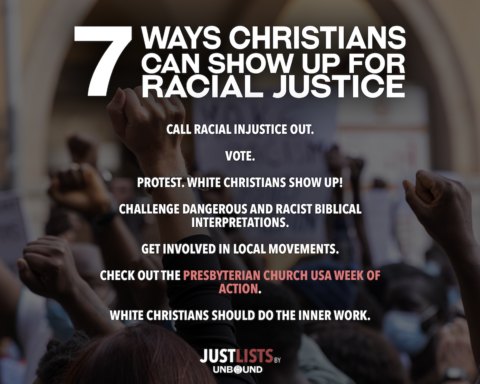Taking a Stand for Racial Justice in the South
Video used with permission from the Presbyterian Historical Society, part of the Living History film project.
Vernon Broyles wrestled with leadership choices in a congregation fractured over racial tension in the mid-20th century.
Edited Transcript:
My name is Vernon S. Broyles, III. I was born on April 19, 1937, in Canton, MS. My father was pastor of the Canton Presbyterian Church. My early life is remembered as very happy; when I was almost 4, my dad was called to the North Avenue Presbyterian Church in Atlanta. We ended up moving into a neighborhood called Ansley Park; it is really the closest residential area to downtown Atlanta.
My dad lived out what was an absolute trust in the providence of God. I guess for me it’s almost genetic, I think I inherited that. And at Union Seminary in Richmond, there was a group of us who got involved in demonstrations. There were two department stores – Thalhimers and Miller & Roads – that had lunch counters that were segregated. A few of us from the seminary got organized to go and demonstrate there, along with the other people.
That caused some concern for the administration, I think, and some of the trustees. But to their credit, whether they were comfortable or not, they supported us in our right to do that. Dr. John Leith and James Mayes, two of our professors, were overtly supportive of us. We met with the president, Dr. James A. Jones, and he made it clear that he was uncomfortable with our doing it, but he absolutely supported our right to exercise our consciences that way, and that helped shape me in many ways.
___________________________________________
And at Union Seminary in Richmond, there was a group of us who got involved in lunch-counter demonstrations. That caused some concern for the administration and some of the trustees. But to their credit, whether they were comfortable or not, they supported us in our right to do that.
___________________________________________
In my senior year, I was called to a small church in Scotland County, North Carolina, in the east-central part of the state. And that’s where my ministry began.
My first parish was in a small town, population of 500. There was a Presbyterian church at one end and a Baptist church at the other. Those two churches had a tradition of worshiping together; there was not any real conflict, it’s just that the people who came to town had to make a decision because there were only those two churches there.
When I got to Wagram, NC, it was a small church. In the middle of my time there, one of the elders came to me and said, “Mr. Broyles, I want you to know that we have this action on our session books that says that if black people come to this church to worship, we will meet them at the door and tell them that they would be happier out at the Spring Branch Church outside of town, which was a black congregation in a cotton field outside of town. But we understand that there are all these kneel-ins going on, and a lot of them are North Carolina college students, and they may be better educated than we are. We can’t really use the cultural argument with them. We still feel the same way, but we want to restate our position.”
I called the session meeting, and we had a fairly painful discussion. But they persisted in wanting to put a new statement on the session minutes. And when they acted on that, I did receive the motion, and we went to a vote. I didn’t know what to do – they didn’t tell me in seminary what to do! But I asked that my dissent, as a voting member of the session, be recorded in the minutes, and I wrote a statement that tried to give some Biblical and theological background to my position. I was not happy, but they had done what they wanted to do.
___________________________________________
In the middle of my time there, one of the elders came to me and said, “Mr. Broyles, I want you to know that we have this action on our session books that says that if black people come to this church to worship, we will meet them at the door and tell them that they would be happier out at the Spring Branch Church outside of town.”
___________________________________________
The next year, in 1965, the General Assembly of the Presbyterian Church US adopted an amendment to our book of church order. 201-5, the new language, said, “Faith in Jesus Christ is the only condition for membership and presence at worship in the Presbyterian Church US.” I called the session together, and I said “Brethren, I think we’re out of accord with the Constitution of the Church, and I’d like to have a session meeting to talk about that.”
We got together, and one of the elders had the courage to move that we expunge that previous action from the books and say that everyone is welcome to come in for worship and membership at Montpelier Presbyterian Church. That motion was put to those 8 men, and their vote was 7 in favor of the motion and one abstention – one guy just couldn’t quite do it, but he knew it was the thing to do.
It created some conflict in that church, and there were some people in the church who tried to get rid of me. I was asked to announce that to the congregation the next Sunday, and when I did, at the end of that service, there were some elders who got corned and people shaking their fingers at them, but they had done the right thing. It shaped my ministry and my understanding of what it means to be a Presbyterian in a way that I have not only not lost but become more passionate about.
There were those in the PCUS who decided to leave and form the PCA. It affected maybe 10% of the PCUS at most. It affected some presbyteries heavily, and one of those was the one in which I was in, East Alabama Presbytery. There were those in the PCUS and several of them in my own presbytery who had migrated south from the United Presbyterian Church in the north, and they brought with them a different kind of theological conservatism out of those separations in the north. They worked assiduously to inculcate that ultra-conservative theology into the congregations they served and into that presbytery. And they coupled it with playing on the racial fears of the folks about integration. There was fear about the fact that the United Presbyterian Church ordained women to office; the Presbyterian Church US had not made that a requirement. In those days there was some early fear about the church’s stance on sexuality issues.
___________________________________________
I called the session together, and I said “Brethren, I think we’re out of accord with the Constitution of the Church, and I’d like to have a session meeting to talk about that.”
___________________________________________
There was a group which was our southern version of the Lay Committee, a group called “Concerned Presbyterians.” They basically took up the kind of role that in more recent times the Lay Committee had; they did a lot of the publications about the need to separate from the PCUS. It strengthened my resolve, which probably was nurtured in part in that experience in Montpelier Church in North Carolina where these elders honored their vows.
Our church, our Presbyterian history, and our Presbyterian polity is what holds us really together. I believe that Presbyterian polity is the glue that holds us together, and it is in that context of our vows that we can then have the kind of debates that we need to have.
One of the reasons we fight is our certainty about certain things. When two parties are equally certain about different sides of a conflict, something’s got to give. We need to have conviction about our theological principles and all of that, but I think we need to continue to remember, as Paul said, that we all see through a glass darkly, and it’s only in the end that we will see face to face. Therefore, we need not to be absolutely certain about anything except the love of God in Jesus Christ and whatever that means for us.
___________________________________________
If God wants the Presbyterian Church (U.S.A.) to survive and prosper, we will not be able to do anything to kill it, even though sometimes it seems we’re trying.
___________________________________________
I think we’ll keep on moving forward. I have learned so many things from so many people about the breadth of God’s love and the depth of the church’s commitment to mission. If God wants the Presbyterian Church (U.S.A.) to survive and prosper, we will not be able to do anything to kill it, even though sometimes it seems we’re trying.
I suppose we’re all part of history. I mean I certainly am a part of the Presbyterian Church (U.S.A.) and the PCUS, in which I was born and ordained. I have simply tried to trust the Lord to lead me along the way.
*****
The Living History film project features diverse experiences and stories told firsthand by American Presbyterians. Believing that every one of us shapes history in our everyday lives, we aim to educate and inspire through interviews with Presbyterians, asking: how do we make history together?
Read more articles in this issue Call to Confession: Race, White Privilege and the Church!






Unbound Social